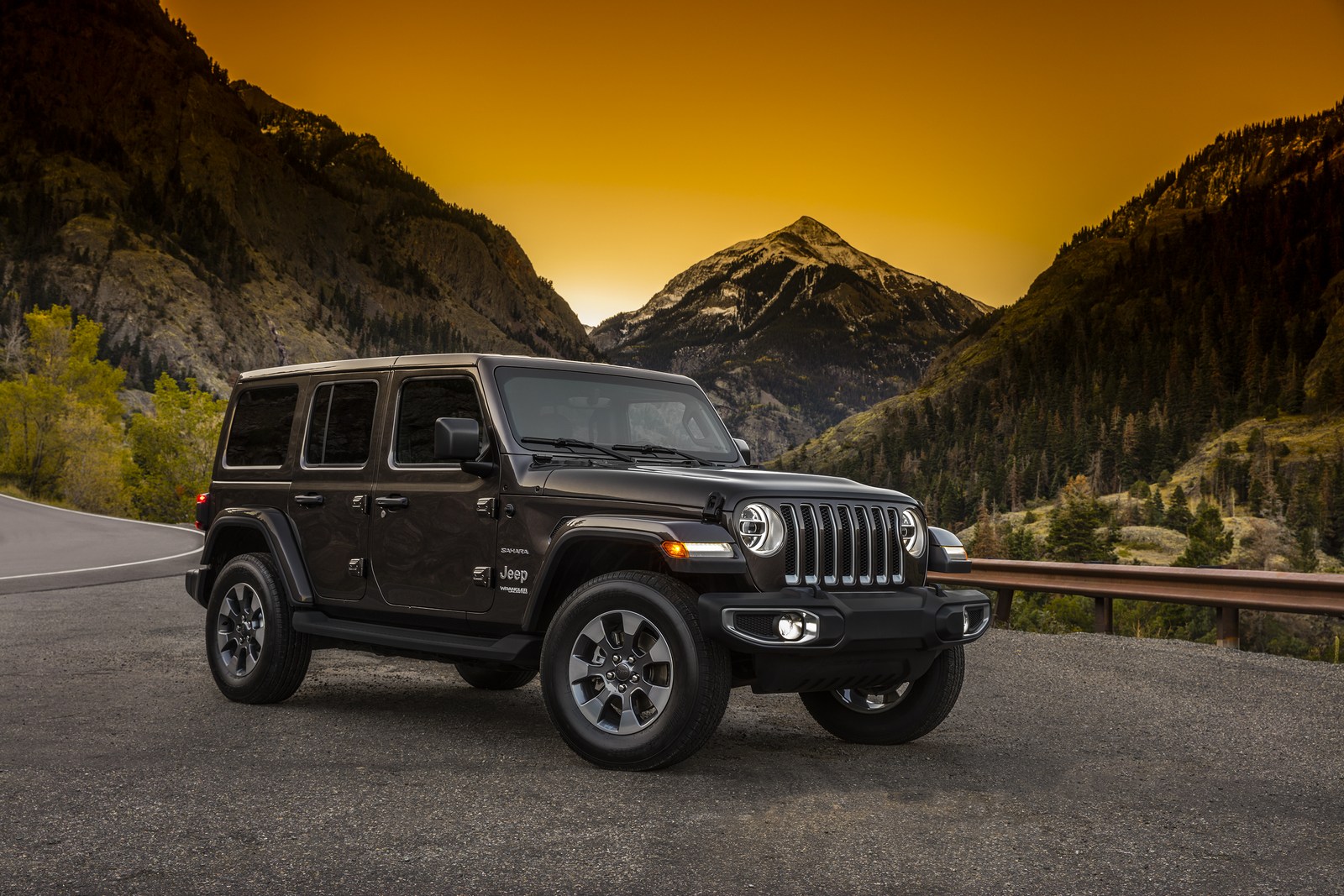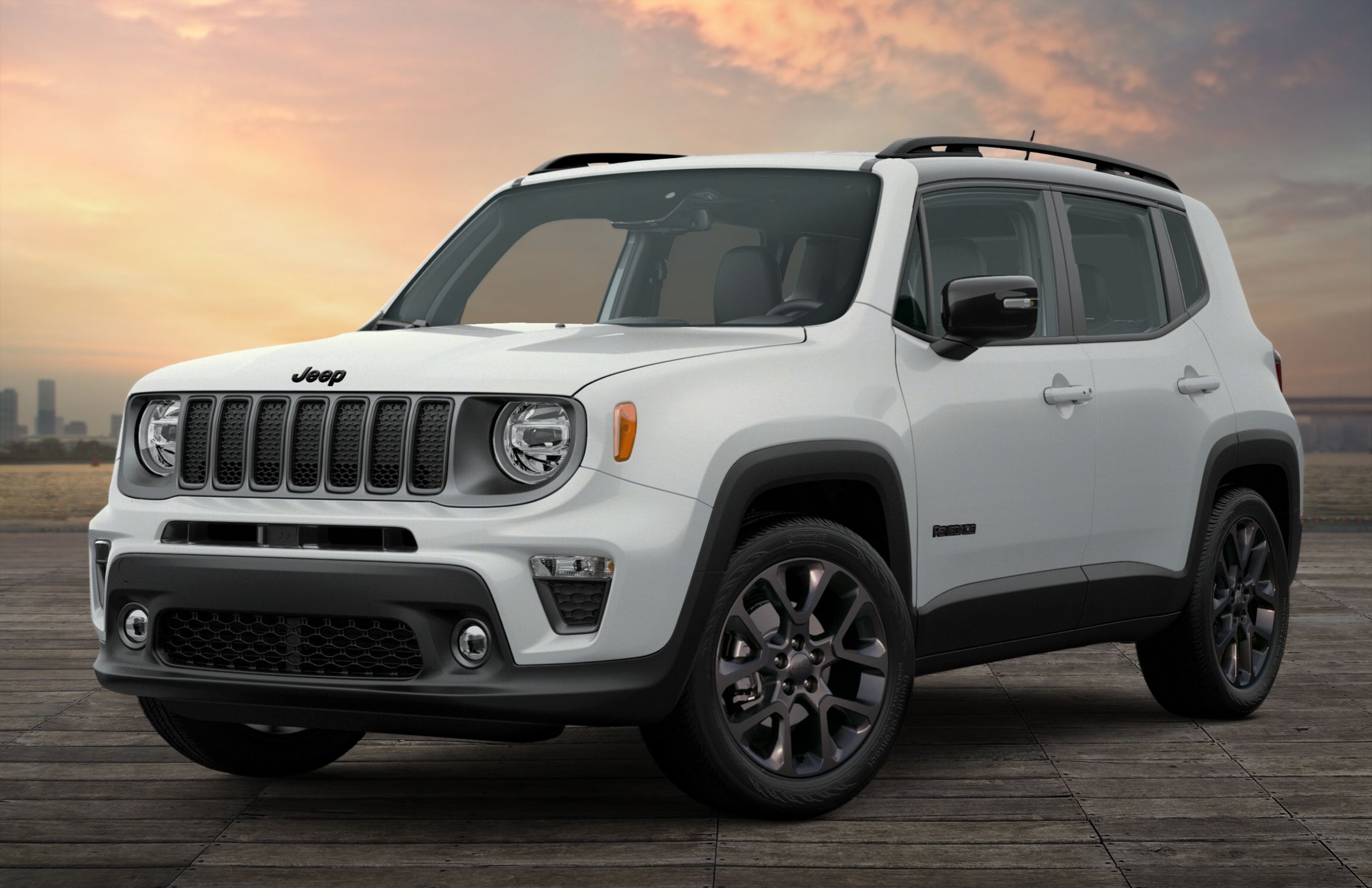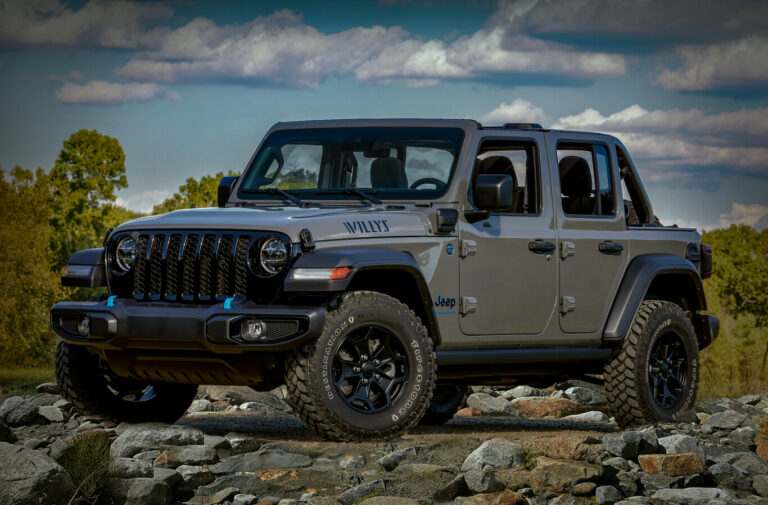Jeep Cherokee Wheels And Tires For Sale: A Comprehensive Guide to Enhancing Your Ride
Jeep Cherokee Wheels And Tires For Sale: A Comprehensive Guide to Enhancing Your Ride jeeps.truckstrend.com
The Jeep Cherokee, a name synonymous with rugged capability and adventurous spirit, has graced roads and trails for decades. From the iconic XJ and the versatile KJ/KK to the modern KL generation, each iteration of the Cherokee has carved its niche in the automotive world. Central to the performance, safety, and aesthetic appeal of any Jeep Cherokee are its wheels and tires. Whether you’re a seasoned off-roader looking for ultimate traction, a daily commuter seeking improved fuel efficiency and comfort, or simply wanting to refresh your vehicle’s appearance, the market for Jeep Cherokee wheels and tires for sale offers a vast array of options.
This comprehensive guide delves into everything you need to know about purchasing, upgrading, or replacing the wheels and tires for your Jeep Cherokee. We’ll explore different types, crucial considerations, where to find the best deals, and how to make an informed decision that perfectly matches your driving needs and aspirations.
Jeep Cherokee Wheels And Tires For Sale: A Comprehensive Guide to Enhancing Your Ride
Understanding Your Jeep Cherokee’s Wheel and Tire Needs
Before diving into the myriad of options, it’s vital to understand the specific requirements of your Jeep Cherokee. Different generations of the Cherokee have distinct stock specifications, bolt patterns, and fender clearances.
- Jeep Cherokee XJ (1984-2001): Often considered the most iconic, the XJ typically uses a 5×4.5-inch bolt pattern. Stock tire sizes were often around 215/75R15 or 225/75R15, with many owners upgrading to 30-31 inch tires, often requiring a lift.
- Jeep Liberty (KJ: 2002-2007 & KK: 2008-2012): While technically a separate model, the Liberty continued the Cherokee lineage in North America. Both the KJ and KK also feature a 5×4.5-inch bolt pattern. Stock tire sizes varied, commonly around 235/70R16 or 235/65R17.
- Jeep Cherokee KL (2014-Present): The modern KL Cherokee uses a 5x110mm bolt pattern, a significant departure from previous generations. Stock tire sizes range from 225/60R17 to 245/65R17, depending on the trim (e.g., Trailhawk models come with more aggressive tires).
Understanding your specific model year and its original equipment manufacturer (OEM) specifications is the first step. Your driving style – whether it’s primarily city driving, highway cruising, occasional off-roading, or serious rock crawling – will heavily influence your choices. Climate also plays a role, with dedicated winter tires being essential in snowy regions.

Types of Wheels for Jeep Cherokees
Wheels are not just about aesthetics; they play a critical role in handling, weight, and durability.
1. Steel Wheels
- Pros: Highly durable, resistant to bending and cracking, easy to repair, and generally the most affordable option. Their weight can also provide a lower center of gravity for some off-road scenarios.
- Cons: Heavier than alloy wheels, which can negatively impact fuel economy and unsprung weight. Less aesthetically pleasing, often requiring hubcaps.
- Ideal For: Budget-conscious buyers, serious off-roaders who prioritize durability over looks, and those who frequently encounter rough terrain.
2. Alloy Wheels
- Pros: Lighter than steel, improving fuel efficiency, acceleration, and braking. Better heat dissipation for brakes. Available in a vast array of designs, finishes, and sizes, offering significant aesthetic customization.
- Cons: More expensive than steel, and more prone to bending or cracking upon impact (though some heavy-duty off-road alloys exist). Can be harder to repair if damaged.
- Ideal For: Most daily drivers, those seeking improved performance and aesthetics, and light to moderate off-road enthusiasts.
3. Beadlock Wheels
- Pros: Designed for extreme off-road use, beadlock wheels physically clamp the tire bead to the wheel, allowing you to run extremely low tire pressures (down to 5 PSI or less) without the tire detaching. This maximizes tire contact patch and grip on challenging terrain.
- Cons: Very expensive, heavier than standard alloys, require more maintenance, and are often not DOT-approved for street use (check local regulations).
- Ideal For: Dedicated rock crawlers and extreme off-road enthusiasts who push their vehicles to the limits.
Wheel Specifications to Understand:
- Diameter: The size of the wheel (e.g., 15-inch, 17-inch, 20-inch).
- Width: How wide the wheel is (e.g., 7-inch, 8-inch). Must match tire width.
- Bolt Pattern: The arrangement of the lug holes (e.g., 5×4.5 inches or 5x110mm). Crucial for fitment.
- Backspacing/Offset: Determines how far the wheel sits inward or outward from the hub. Incorrect offset can lead to rubbing issues, affect steering geometry, and put stress on bearings.
Types of Tires for Jeep Cherokees
Just as with wheels, tires come in various types, each designed for specific conditions and performance goals.
1. All-Season (A/S) Tires
- Characteristics: Designed for year-round use in moderate climates, offering a balance of dry, wet, and light snow traction. Relatively quiet and comfortable on the road.
- Ideal For: Daily commuters, highway drivers, and those in areas with mild winters.
- Limitations: Not ideal for heavy snow, ice, or aggressive off-road conditions.
2. All-Terrain (A/T) Tires
- Characteristics: A popular choice for Jeep owners, A/T tires offer a compromise between on-road comfort and off-road capability. They feature more aggressive tread patterns than A/S tires, with deeper voids for better grip on dirt, gravel, and light mud, while still performing well on pavement.
- Ideal For: Drivers who split their time between paved roads and moderate off-road trails.
- Limitations: Can be slightly louder than A/S tires, and not as capable as dedicated mud-terrain tires in extreme conditions.
3. Mud-Terrain (M/T) Tires
- Characteristics: Built for serious off-road adventures, M/T tires boast large, aggressive tread blocks with wide voids designed to grip and clear mud, rocks, and loose terrain.
- Ideal For: Dedicated off-road enthusiasts, rock crawlers, and those who frequently drive in challenging muddy or rocky environments.
- Limitations: Very noisy on pavement, reduced comfort, faster wear on asphalt, less effective on wet pavement, and often negatively impact fuel economy.
4. Winter/Snow Tires
- Characteristics: Feature specialized rubber compounds that remain flexible in cold temperatures and unique tread patterns with sipes (small slits) that bite into snow and ice.
- Ideal For: Anyone living in regions with significant winter weather, providing superior safety and traction when temperatures drop below 45°F (7°C).
- Limitations: Not suitable for warm weather use, requiring a seasonal tire change.
Tire Sizing and Ratings:
- Metric Sizing (e.g., 245/70R17):
- 245: Tire width in millimeters.
- 70: Aspect ratio (sidewall height as a percentage of width).
- R: Radial construction.
- 17: Wheel diameter in inches.
- Flotation Sizing (e.g., 31×10.50R15):
- 31: Overall tire diameter in inches.
- 10.50: Tire width in inches.
- R: Radial construction.
- 15: Wheel diameter in inches.
- Load Index: Indicates the maximum weight a tire can support.
- Speed Rating: Indicates the maximum speed a tire is rated for. Always ensure these ratings meet or exceed your vehicle’s requirements.
Benefits of Upgrading or Replacing Your Wheels and Tires
Investing in new or different wheels and tires for your Jeep Cherokee offers a multitude of advantages:
- Enhanced Off-Road Capability: Larger, more aggressive tires (like A/Ts or M/Ts) provide superior traction, improved ground clearance, and better articulation, allowing you to tackle more challenging trails.
- Improved On-Road Performance: Lighter alloy wheels can reduce unsprung weight, leading to better handling, braking, and acceleration. Proper tires can also enhance wet weather grip and reduce braking distances.
- Aesthetic Appeal and Personalization: A new set of wheels and tires can dramatically transform your Cherokee’s appearance, giving it a more aggressive, rugged, or refined look that reflects your personal style.
- Safety: Worn-out tires compromise safety. Replacing them ensures optimal grip, especially in adverse weather conditions. Choosing the right tire type for your driving environment also enhances safety.
- Fuel Efficiency: While larger, heavier tires can decrease fuel economy, switching from heavy steel wheels to lighter alloys (with appropriate tire choices) can sometimes lead to minor improvements.
- Increased Durability: Upgrading to stronger wheels and more robust tires can withstand the rigors of off-roading better than stock components, reducing the likelihood of damage.
Where to Find Jeep Cherokee Wheels and Tires For Sale
The market offers numerous avenues for purchasing wheels and tires, whether new or used.
New Wheels and Tires:
- Authorized Dealerships: Reliable source for OEM parts, but often the most expensive.
- Specialty Tire & Wheel Shops: Chains like Discount Tire, Les Schwab, Pep Boys, or local independent shops offer a wide selection, professional advice, installation, and balancing services.
- Online Retailers: Websites like Tire Rack, Quadratec (Jeep-specific), Summit Racing, and Amazon offer competitive pricing, vast inventories, and direct shipping. Be mindful of shipping costs for heavy items.
- Manufacturer Websites: Direct from brands like BFGoodrich, Goodyear, Michelin, Method Race Wheels, etc.
Used Wheels and Tires:
- Online Marketplaces: Craigslist, Facebook Marketplace, eBay are popular for finding local deals.
- Local Junkyards/Salvage Yards: Can be a treasure trove for older OEM wheels, but tires might be past their prime.
- Off-Road Forums & Clubs: Enthusiast communities often have "for sale" sections where members upgrade and sell their old sets.
- Tips for Buying Used:
- Inspect Thoroughly: Check for cracks, bends, curb rash (wheels) and uneven wear, punctures, patches, dry rot, and age (tires).
- Tread Depth: Use a penny or tread depth gauge.
- DOT Date Code: Tires have a four-digit code indicating week and year of manufacture (e.g., 3222 = 32nd week of 2022). Tires older than 6-7 years, even with good tread, may have compromised rubber.
- Ask Questions: Why are they selling? How many miles on them?
- Test Fit (if possible): Ensure proper clearance before buying.
Important Considerations Before Purchase
Making the right choice involves more than just picking a cool design.
- Budget: Determine your spending limit. New sets can range from a few hundred to several thousand dollars. Used options are cheaper but come with risks. Remember to factor in installation, balancing, and potentially a spare tire.
- Fitment and Compatibility:
- Bolt Pattern: Absolutely critical. Ensure it matches your Cherokee’s generation.
- Backspacing/Offset: Crucial for preventing rubbing against suspension components or fender flares. Research what works for your specific model and any lift you may have.
- Fender Clearance: Larger tires often require a suspension lift kit to prevent rubbing, especially during turns or when the suspension compresses.
- Legal Regulations: Some areas have laws regarding how far tires can protrude from fenders. Larger tires might necessitate fender flares.
- Impact on Performance:
- Gearing: Significantly larger tires can make your engine feel sluggish and impact fuel economy, sometimes necessitating a re-gear of the differentials.
- Speedometer Calibration: Changing tire size will throw off your speedometer and odometer readings. A calibration device (e.g., AEV ProCal) is recommended.
- TPMS (Tire Pressure Monitoring System): Modern Cherokees have TPMS sensors in the wheels. New wheels will need new sensors or you’ll need to transfer your old ones.
- Installation: Professional installation, mounting, and balancing are highly recommended to ensure safety and proper performance. An alignment after significant changes is also a good idea.
- Warranty: New wheels and tires typically come with warranties against defects. Understand what is covered.
Tips for Buying and Selling
For Buyers:
- Research, Research, Research: Use online forums, manufacturer websites, and tire/wheel calculators to confirm compatibility and optimal sizes for your Cherokee.
- Read Reviews: Check reviews for specific tire and wheel models from other Cherokee owners.
- Compare Prices: Don’t just buy the first set you see. Shop around.
- Consider a Package Deal: Many retailers offer discounts when you buy wheels and tires together.
For Sellers:
- Clean Your Items: Presentable items sell faster and for better prices.
- Take Good Photos: High-quality, well-lit photos from multiple angles.
- Be Honest About Condition: Disclose any damage, wear, or repairs. This builds trust.
- Provide Full Details: List brand, model, size, bolt pattern, offset, tread depth (for tires), and age (DOT code).
- Set a Fair Price: Research what similar items are selling for in your area.
Estimated Price Table: Jeep Cherokee Wheels and Tires For Sale
Please note that these prices are estimates and can vary significantly based on brand, specific model, new vs. used condition, promotions, and location. Installation and balancing costs are typically separate.
| Category | Item Description (Example Size) | Estimated New Price (Set of 4) | Estimated Used Price (Set of 4) | Notes |
|---|---|---|---|---|
| Wheels | ||||
| Steel Wheels | Basic Black Steel (15-17 inch) | $300 – $600 | $100 – $300 | Durable, heavy, cost-effective, ideal for severe off-roading. |
| Entry-Level Alloy | Aftermarket Alloy (15-17 inch) | $600 – $1,200 | $250 – $700 | Lighter, better aesthetics, good for daily driving & light trails. |
| Mid-Range Alloy | Popular Brand Alloy (17-18 inch) | $1,000 – $1,800 | $400 – $900 | Improved design and quality, common for popular upgrades. |
| Premium Off-Road Alloy | High-End/Specialized Alloy (17-20 inch) | $1,800 – $3,000+ | $800 – $1,500 | Designed for aggressive use, higher load ratings, unique finishes. |
| Beadlock Wheels | True Beadlock (15-17 inch) | $2,000 – $4,000+ | $1,000 – $2,000 | For extreme off-roading, may not be street legal. |
| Tires | ||||
| All-Season (A/S) | Standard P-Metric (e.g., 225/75R16) | $400 – $800 | $150 – $400 | Quiet, comfortable, good for general road use. |
| All-Terrain (A/T) | Popular A/T (e.g., 265/70R17) | $800 – $1,500 | $300 – $800 | Balanced on/off-road performance, popular choice. |
| Mud-Terrain (M/T) | Aggressive M/T (e.g., 31×10.5R15) | $1,000 – $2,000+ | $400 – $1,000 | Maximum off-road traction, noisy on pavement. |
| Winter/Snow Tires | Dedicated Winter (e.g., 235/65R17) | $600 – $1,200 | $200 – $600 | Superior grip in cold temperatures and snowy/icy conditions. |
| Wheel & Tire Packages | ||||
| Basic Replacement | Steel Wheels + A/S Tires | $700 – $1,200 | $300 – $600 | Economical choice for replacing worn components. |
| Popular Upgrade | Entry-Level Alloy + A/T Tires | $1,400 – $2,500 | $600 – $1,500 | Common choice for improved looks and light off-road capability. |
| Performance Off-Road | Premium Alloy/Beadlock + M/T Tires | $2,500 – $5,000+ | $1,200 – $2,500 | For serious off-road enthusiasts, significant investment. |
Disclaimer: All prices are estimates for a set of four wheels or tires/packages and do not include shipping, mounting, balancing, TPMS sensors, or sales tax. Prices can fluctuate wildly based on market demand, brand, specific model, and condition.
Frequently Asked Questions (FAQ) about Jeep Cherokee Wheels and Tires
Q1: What is the best tire size for my Jeep Cherokee?
A1: This depends heavily on your Cherokee’s generation and whether it has a suspension lift.
- XJ: Many stock XJs can fit up to 30-inch tires, while a 2-3 inch lift typically allows for 31-inch tires.
- KJ/KK: Similar to XJ, often fitting up to 30-inch tires stock, with 31-inch requiring a lift.
- KL: Stock KLs (especially Trailhawk) can often handle 29-30 inch tires. Larger sizes may require minor modifications or a lift. Always check specific fitment guides for your exact year and trim.
Q2: Do I need to lift my Cherokee to fit bigger tires?
A2: For significantly larger tires than stock (e.g., 31-inch on an XJ/KJ/KK or over 30-inch on a KL), a suspension lift is almost always necessary to prevent rubbing during turns and suspension articulation.
Q3: What’s the difference between wheel backspacing and offset?
A3:
- Backspacing: The distance from the wheel’s mounting surface to the back edge of the wheel. Higher backspacing means the wheel sits further inward.
- Offset: The distance from the wheel’s mounting surface to the centerline of the wheel.
- Positive Offset: The mounting surface is towards the front of the wheel (sits further inward).
- Negative Offset: The mounting surface is towards the back of the wheel (sits further outward, creating a wider stance).
Both affect how the wheel sits in relation to your vehicle’s fender and suspension components. Incorrect values can cause rubbing.
Q4: Can I put different size wheels on my Jeep Cherokee?
A4: Yes, within limits. As long as the bolt pattern is correct and the wheel diameter allows for an appropriate tire size (maintaining overall tire diameter close to stock or accommodating a planned lift), you can change wheel diameter. However, drastic changes can affect ride quality and performance.
Q5: How often should I rotate my Jeep Cherokee tires?
A5: It’s generally recommended to rotate your tires every 5,000 to 7,500 miles, or according to your tire manufacturer’s recommendations. Regular rotation ensures even wear and extends tire life.
Q6: What is TPMS, and do I need it for my new wheels?
A6: TPMS stands for Tire Pressure Monitoring System. Most modern Jeep Cherokees (roughly 2007 onwards) are equipped with TPMS. If your Cherokee has TPMS, your new wheels will need compatible TPMS sensors, or you’ll need to transfer your existing ones, to avoid a dashboard warning light and maintain safety features.
Q7: Is it safe to buy used wheels and tires for my Cherokee?
A7: Yes, it can be safe and cost-effective, but requires careful inspection. Always check for damage (cracks, bends, deep gouges on wheels; uneven wear, punctures, dry rot on tires), and verify the tire’s age (DOT code). If unsure, have a professional inspect them.
Q8: Will changing my tire size affect my speedometer?
A8: Yes, changing the overall diameter of your tires will affect your speedometer and odometer readings. Larger tires will make your speedometer read slower than your actual speed, and smaller tires will make it read faster. It’s highly recommended to recalibrate your speedometer using a programming tool or by a mechanic.
Conclusion
Choosing the right wheels and tires for your Jeep Cherokee is a significant decision that impacts everything from performance and safety to aesthetics and fuel economy. Whether you’re replacing worn-out components, upgrading for enhanced off-road prowess, or simply aiming for a fresh look, the market offers an abundance of choices.
By understanding your Cherokee’s specific needs, familiarizing yourself with the different types of wheels and tires available, and considering crucial factors like fitment, budget, and driving conditions, you can make an informed decision. With careful research and smart shopping, you’ll find the perfect combination of Jeep Cherokee wheels and tires for sale that not only meets your requirements but also elevates your beloved Jeep to new heights of capability and style. Drive confidently, knowing your Cherokee is equipped to conquer any adventure you throw its way.



